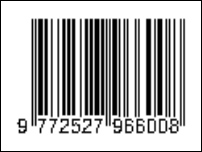Klasifikasi Penelitian Dosen Menggunakan Naïve Bayes Classifier dan Algoritma Genetika
(1) Universitas Indraprasta PGRI Jakarta
(*) Corresponding Author
Abstract
Research is an obligation for lecturers to develop their knowledge besides teaching. Until now all lecturer's research is managed by the Institute for Research and Community Service, often called LPPM. College research institute is a place where all lecturer research information can be obtained, problems encountered at tertiary research institutions are the grouping process in the field of lecturer research carried out by the LPPM data and information system section, this is also one of the problems related to text classification . Classification is the process of finding a model that describes and distinguishes classes or concepts that aim to be used to predict classes from objects whose class labels are unknown. Naive Bayes is a simple probabilistic based prediction technique based on the application of the Bayes theorem with strong independence assumptions. In this method there are deficiencies that can affect the accuracy caused by the Naive Bayes feature which is not always applicable. To deal with these problems, researchers conducted a feature selection process using Genetic Algorithms. The dataset used is 275 lecturer research data from all scientific fields. The results of experiments in this study indicate that the accuracy value increased by 26.06% with the use of Genetic Algorithms in the feature selection process.
Keywords
Full Text:
PDFReferences
Socrates, I. G. A., Akbar, A. L., Akbar, M. S., Arifin, A. Z., & Herumurti, D. (2016). Optimasi Naive Bayes Dengan Pemilihan Fitur Dan Pembobotan Gain Ratio. Lontar Komputer : Jurnal Ilmiah Teknologi Informasi, 7(1), 22. https://doi.org/10.24843/LKJITI.2016.v07.i01.p03
Li, J., Ding, L., & Li, B. (2014). A novel naive bayes classification algorithm based on particle swarm optimization. Open Automation and Control Systems Journal, 6(1), 747–753.https://doi.org/10.2174/1874444301406010747
Muhamad, H., Prasojo, C. A., Sugianto, N. A., Surtiningsih, L., & Cholissodin, I. (2017). Optimasi Naïve Bayes Classifier Dengan Menggunakan Particle Swarm Optimization Pada Data Iris. Jurnal Teknologi Informasi Dan Ilmu Komputer, 4(3), 180. https://doi.org/10.25126/jtiik.201743251
Fathan Hidayatullah, A., Rifqi Ma, M., & Program Studi Manajemen Informatika STMIK Jenderal Achmad Yani Yogyakarta Jl Ringroad Barat, arif. (2016). Penerapan Text Mining dalam Klasifikasi Judul Skripsi. Seminar Nasional Aplikasi Teknologi Informasi (SNATi) Agustus, 1907–5022.
Rammal, A., Perrin, E., Vrabie, V., Assaf, R., & Fenniri, H. (2017). Selection of discriminant mid-infrared wavenumbers by combining a naïve Bayesian classifier and a genetic algorithm: Application to the evaluation of lignocellulosic biomass biodegradation. Mathematical Biosciences, 289, 153–161. https://doi.org/10.1016/j.mbs.2017.05.002
Gupta, D. K., Vasudev, K. L., & Bhattacharyya, S. K. (2018). Genetic algorithm optimization based nonlinear ship maneuvering control. Applied Ocean Research, 74, 142–153. https://doi.org/10.1016/j.apor.2018.03.001
Prasetyo, E. (2012). Data Mining : Konsep dan Aplikasi menggunakan MATLAB. ANDI.
Yandra Arkeman, Yeni Herdiyeni, Irman Hermadi, G. F. L. (2014). Algoritma Genetika Tujuan Jamak (Multi-Objective Genetic Algorithms): Teori dan Aplikasinya untuk bisnis dan Agrondustri. IPB Press.
Bramer, M. (2007). Principles of Data Mining. In Principles of Data Mining. https://doi.org/10.1007/978-1-84628-766-4
Han, J., Kamber, M., & Pei, J. (2012). Introduction. In Data Mining (3th ed., pp. 1–38). Elsevier.
https://doi.org/10.1016/b978-0-12-381479-1.00001-0
Han, J., Kamber, M., & Pei, J. (2012). Introduction. In Data Mining (3th ed., pp. 1–38). Elsevier. https://doi.org/10.1016/b978-0-12-381479-1.00001-0
DOI: http://dx.doi.org/10.30998/string.v5i2.6912
Refbacks
- There are currently no refbacks.
Copyright (c) 2020 Muhammad Yusuf Bakhtiar

This work is licensed under a Creative Commons Attribution 4.0 International License.
STRING (Satuan Tulisan Riset dan Inovasi Teknologi) indexed by:

Ciptaan disebarluaskan di bawah Lisensi Creative Commons Atribusi 4.0 Internasional.
View My Stats


 Sertifikat Akreditasi
Sertifikat Akreditasi
















